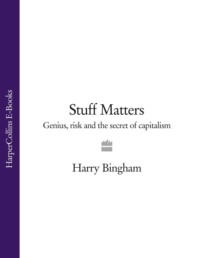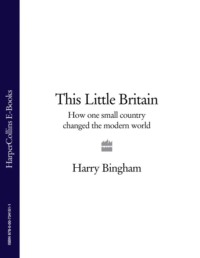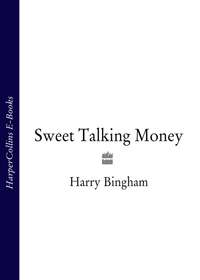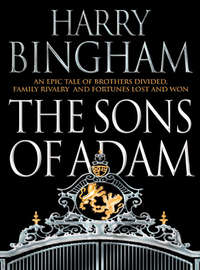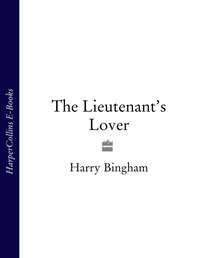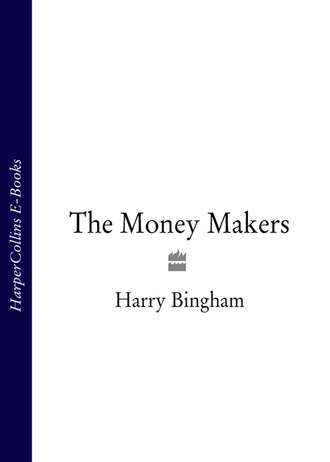
Полная версия
The Money Makers
His factory. His headache. His problem. His key to a million pounds.
3
McAllister’s ten days were up, but he was busy. Matthew watched his office like a hawk. McAllister was either in meetings or on the phone all day. Anxiety continued to chew at Matthew’s stomach. Get off the phone. Give me the answer.
Eventually, at four o’clock, McAllister caught Matthew’s glance and signalled him over. Matthew hurried across and was about to take his seat when McAllister asked him to close the door. That door was never closed. It was never closed, except, if rumour was true, when McAllister fired people. Matthew shut the door and sat down awkwardly.
‘I’ve three things to say to you, Matt. First, you did a fine job on that piece of work the other day. Too many traders, not just in this bank but everywhere, think that their market feel is so good that they don’t need to understand the facts. That’s bullshit. Every good trader has market feel, but a fine trader is a salesman, an economist and a diplomat as well. I think you understand that and I like it.
‘Secondly, we are going to give you a job here. You can finish your present assignment and then we’ll send you off to New York for the training programme. If you flunk that, or if your teachers there think you need to complete your degree, then we’ll chuck you out and that’s that. But I don’t see why you should fail. I think you will make a good trader.
‘The third thing is this. My good friend, Bob Landau, who runs the trading floor at Coburg’s, tells me that your brother is expected to do well in the corporate finance department there. They’ve never heard of you, and it’s pretty clear that you don’t know much about them. There are rules which matter a lot in banks and they matter most of all on the trading floor. At some point most traders break them. They don’t record a trade when they should do. They exceed a position limit. They tell a lie or conceal the truth from a client. I regret that this game is what it is. But I know that paying young men what we pay them and motivating them as we motivate them will encourage mistakes. What I tell traders in this firm is this: you can make one mistake and usually we will forgive it. But if you make two, it suggests you’re not capable of learning from your errors and we don’t want you here. You, Matthew, have used up your mistake.’
4
Home late after a party. The music had been excellent, the drink OK, the men crap. Josie tittered to herself, releasing a belch into the gentle autumn night, not walking quite straight as she turned into the street for home.
But beneath her giggles and her party dress, she was sad. Her best friends had been planning their skiing holiday and chatting about their fast approaching university life. Josie hadn’t the money to go skiing and she wasn’t going to university. She’d joined in, but sadly. Before the party broke up in a familiar scurry for taxis, mobile phones and sports cars, Josie had left, needing to catch the last tube.
She was annoyed with her mum. She knew, as Zack had said, that their mother’s plight was in part self-inflicted. But what was she to do? Ignore her? Leave her without an income? Tell her to get on her bike, get a job, get on with life? Roll up her increasing depression and put it out with the garbage? Her seventeen-year-old self wanted life now, skiing now, A levels, university, career, everything. She wanted the life she’d been promised and was angry at whatever stood in its way.
She unlocked the front door. In the living room, a light was on. Helen Gradley sat in the armchair, head slumped, a needle of saliva hanging from her mouth. Her hands were blue.
‘Mum? Mum! Jesus Christ.’ Josie leaped to the phone, dialling 999. ‘Ambulance, please.’ She reached for her mother’s mouth. There was no flow of breath that she could feel. ‘It’s my mum. Please come quickly. I think she’s dead.’
5
Buying a company is no different from buying a used car. You can go for a test drive, you can lift the bonnet, you can haggle on price. But once you’ve handed over your money and driven away, there’s no comeback. When the car overheats, when the big end blows, when the hydraulic system escapes the engine in a cloud of steam, it’s tough.
Some people are experts. They can spot a repainted panel from twenty yards and a dodgy dealer from twenty miles. They don’t need help. They can do the whole job – inspect the car, negotiate a price, agree the deal – by themselves. Lucky them. But most people aren’t like that. We either call in experts to inspect the car – the AA, the RAC or whoever – or we get used to clouds of steam, expensive call-outs, and handing money over to people who burst out laughing as soon as we’ve left the forecourt.
It’s the same with companies. If you want to buy a company, then, before you scribble out your cheque, you’ll lift the bonnet and have a damn good look. And, unless you’re very smart or very foolish, you’ll want to have an expert with you when you do. What’s more, if you’re about to write a cheque for a hundred million pounds, or a billion, or more, you probably won’t mind writing a little tiny one – not more than one percent of the purchase price – to the expert who looks after you so well. The experts in company takeovers are called corporate financiers, and if the good ones aren’t always happy you can be sure it’s not for want of money. One percent of a billion is ten million pounds.
Right now, two corporate financiers from Coburg’s had the bonnet up and yawned with tedium.
The room they sat in was twenty foot by fifteen. One side was wall-to-wall windows with a view out over the sweeping roofs of Liverpool Street station. One wall held the door and a low side-table for coffees and suchlike. The other two walls were covered in pale beech shelving stacked with eighty-eight lever-arch files. A further six files lay open on the table in the middle. Each file was thick with documents. The index to the files was fifty-five pages long, plus a three-page ‘Guide to Additional Material’. Zack rubbed his eyes.
‘Jesus Christ. Is it always as dull as this?’
The two men from Tominto Oil had gone off for lunch, so Zack and Sarah could speak freely. It was weird working together. She was engaged to be married, he was as attracted to her as ever. They weren’t even friends, really, just colleagues. Perhaps they had never been friends, just lovers who argued. So now they kept themselves to themselves, talked about work, tried to be polite, to ignore the electricity which filled the air.
‘We’ve got ninety-four files to cover. That’s not so bad. I once saw a data room with three hundred and seventy files, for a deal that lasted a year and a half then never happened. That was bad.’
Sarah spoke dismissively. She felt uncomfortable. Putting the two of them in the same project team was like mixing air and petrol and hoping there wouldn’t be a spark. But Piers St George Hanbury, the project leader, didn’t know their history, and Sarah did her best to muffle the possibility of any real contact, let alone a spark.
They were part of a Coburg’s team helping a Texan oil company, Tominto Oil, buy a Scottish one. The Scottish one, Aberdeen Drilling, was being auctioned off by its parent company, which was currently talking to four serious bidders, including Tominto. Zack and Sarah and the two men from Tominto Oil were in the Aberdeen Drilling data room: the room which held every important document to do with the company. This was the Aberdeen Drilling engine, and the bonnet was up. Each bidder was allowed one week to look. They were allowed to read everything, take as many notes as they wanted, but they were allowed to copy nothing.
At the end of the week the bonnet would be brought down again and Tominto and Coburg’s would need to go away, discuss what they’d seen, and work out a price they’d be prepared to offer. If their bid was the highest of the four submitted, they’d sign a contract, buy the company, and drive it off into a happy, and hopefully breakdown-free, future. If their bid was one of the three lowest, the seller would shake his head, say so sorry, and leave them to watch all their work go swirling down the plughole. The Tominto people would go back to running their company and the Coburg’s corporate financiers would go chasing the next deal.
And what if the data room wasn’t complete? What if, amongst the myriad documents – management accounts, tax filings, statutory accounts, environmental reports, supply contracts, customer analyses, and a thousand other things – what if one or two nasty surprises were carefully left out, so that the poor old buyers didn’t have a clue? Well, it’s like the better end of the car trade. When you buy a company, you sign a contract which gives you a limited warranty. The warranty protects against any nasty surprises which you haven’t been told about. If something should have been in the data room and wasn’t, and it ends up costing you money, then you can go to the seller and demand a refund.
So sellers have a different strategy. Sellers put everything into the data room. Everything. They fill it as full as they possibly can. If they have time bombs, they bury them. They bury them under a mountain of detail so dull, that Buddha himself would kick the walls and scream. Every time Zack and Sarah were tempted to skip a page, they were stopped sharply by the thought that as they flicked forward they might miss it. The time bomb. The thing they were in the data room to find.
There were the two guys from Tominto Oil as well, but they weren’t the experts. In its forty-year life, Tominto Oil had purchased only about five companies worth more than a few million dollars. Coburg’s closed more deals than that every two or three months. The guys from Tominto are like you looking under the bonnet. ‘The thingamajig looks dirty,’ you say. ‘Is that doodah meant to have that bend in it?’ Stand back, sucker. Get out of the light and let the experts look.
Zack and Sarah went back to their files. Sarah was tapping notes into a portable computer. Zack had a laptop too but he wasn’t using it, he was using something more powerful: his memory. Since early boyhood, Zack had developed a pretty much photographic memory. He could look at a page, take it in, then just move on, knowing that he could bring it back to mind as clearly as if he had it in front of him. They weren’t allowed to copy stuff, but Zack didn’t need to. He was photographing it.
The silence settled again: Sarah tapping keys, both of them turning pages, looking for trouble, feeling strange in each other’s presence. Page, after page, after page.
6
Terminal 4 at Heathrow is the most exciting of them all. Long-haul destinations flick up on departure screens like locations in a Bond movie. African chiefs in full tribal regalia rub shoulders and crash trolleys with neat Japanese businessmen. Arabs travelling with enough baggage to fill a jeep mix with students holding a single battered rucksack and a passport crammed with visas. This is a true melting pot, the world in chaos. It is exhilarating.
But amidst the confusion, a silent but complete apartheid rules. Economy travellers to the left. Business travellers to the right. And to the very far right, in their own quiet corner, first class and Concorde passengers are massaged gently through the inconvenience of having to walk to the plane at all. In that land of whispers, the rich, the famous and the powerful disappear down their own gangways, flattered, pampered and attended every step of the way.
Matthew was standing in the economy queue, and he wasn’t enjoying it.
In the days when his father had paid for his airline tickets, Matthew had usually travelled business class, even first class if he could stand the inevitable argument. Today, with an economy ticket, Matthew gazed at the long queue stretching ahead of him and looked again at his watch. It was now only fifty minutes to takeoff and the queue seemed to be stuck. Only the rear view of a particularly attractive French girl kept him from losing his temper altogether. She was casually dressed in jeans and a crisp white cotton shirt, but the designer look was unmistakable and her figure was a pleasure to behold. She pushed a single large suitcase and carried a soft white leather bag on her shoulder. Matthew wanted to see her face but was half afraid that if she turned her head she would disappoint him. Right now, she looked perfect.
Just then the queue which had been stuck broke into a confusion at the far end by the check-in desk. The neat line of people dissolved into a scrum. Like everybody else, Matthew pushed forward to see what was happening.
The plane due to leave for New York at six that evening had developed some mechanical failure. They had found a replacement, but the replacement was a smaller 767, instead of the scheduled jumbo. The remaining passengers would not be able to travel that night. All passengers would be given a choice of accommodation at a nearby airport hotel or cash to allow them to travel home. All passengers would be able to travel out first thing the next day on a plane arranged especially for them. British Airways apologised profusely for any inconvenience caused. Passengers should contact the ground staff if they required help.
Matthew was apoplectic. He was flying to New York to join Madison’s notoriously tough training programme, which started tomorrow. On the first morning, the bank’s president was to give an introductory talk famous for its brevity. ‘Take a good look at the students on either side of you,’ he was reputed to say. ‘Chances are that by the end of the programme, one of those students, or you, will have flunked the course. And there is no second chance, so do your best. And remember: in times to come, your fellow students may be your friends and colleagues. Right now they are also your competitors.’
It wouldn’t be his fault if he were late. Brian McAllister had kept him in over the weekend on some dumb project that needed finishing and this was the last flight to get him there on time. Because he was a trainee, he had to fly economy, a saving which now threatened to tip him off the flight. But Madison wanted results not hard-luck stories, and Matthew looked set to be the first student not even to arrive on the first day.
‘Merde!’
The thought was Matthew’s, but the words came from elsewhere. It was the French girl in the white shirt. Her face was no disappointment at all. Long, dark brown hair fell smoothly from a centre parting, beautifully framing her oval face. She had clear fair skin, a slight pink blush, high cheekbones. She looked like a madonna, travelling light. Though obviously annoyed, she remained entirely composed. She was perfect, thought Matthew, absolutely perfect. Just for a moment the flight was forgotten.
The French girl wasn’t really talking to anyone, just announcing her feelings, but Matthew felt he might as well respond.
‘Unbelievable, isn’t it?’ he said, brilliantly.
‘Terrible. I need to be in New York tonight. I have changed my booking twice already.’
‘Me too. Let’s see if we can get any joy here,’ said Matthew, throwing his weight into the mêlée ahead.
‘I don’t think you will have any fun there. Not unless you have something which the fifty people ahead of you don’t have. Come.’
She turned and set off rightwards to the serene world of business class. Matthew hesitated a moment, then followed. When he caught up with her a few yards from the check-in counter, she was in tears and her hands twisted round her handkerchief in agitation. He hurried to keep alongside her. At the desk she threw down her passport and her ticket. Between sobs she gasped, ‘We have to go to New York tonight. We have to.’
She then seemed to break down completely, and in an instant had nestled herself inside Matthew’s startled embrace. She was beautiful, beautiful, beautiful. Her body melted into his, seeking protection. He held her. He didn’t mind.
Then, with a further convulsion, she jerked free. Tugging at the ring finger of her left hand, she pulled off two rings and flung them on to the counter. One held a simple sapphire surrounded by a circle of tiny diamonds. The other was a plain gold band.
‘If you are going to ruin our honeymoon, you may as well have these as well!’ she cried.
The rings skittered across the counter. One of them fell into the stewardess’s lap, while the other flew on to the conveyor belt taking luggage to the cargo hall. The stewardess made a cricketer’s leap and snatched the ring up before it was carried away.
The diversion was enough for Matthew to regain his cool. As the stewardess grabbed the ring, he stole a glance at the passport on the counter in front of him. Sophie Clemenceau. As the stewardess resurfaced again, red-faced but holding both rings, Matthew stepped in. Drawing his companion further into his arms, he said, ‘I do apologise. Sophie doesn’t mean that at all. She knows it’s not your fault. She’s just upset.’
‘This is your honeymoon?’ asked the stewardess.
‘That’s right. You’re looking at the brand new Mr and Mrs Matthew Gradley.’ A squeeze below the level of the counter thanked him for the information.
‘Oh, it seems a terrible shame to spend your first night on honeymoon in the airport hotel. It’s not very nice, to be honest.’
‘Well, I suppose we don’t have much of a choice. I’m sure Sophie will be OK after a few days, though she is very superstitious.’
Sophie did a good job pretending that she wouldn’t get over the shock in a few months, let alone a few days. Matthew felt his shirt sticking to his chest where it was soaked from her tears.
‘Just a second. Let me see what I can do. I wouldn’t have wanted my honeymoon to be spoiled by anything like this.’
The stewardess whisked away. Matthew went on petting the sobbing Sophie. It was no torture. He hoped the stewardess would take her time. With her gone, Sophie held herself away from Matthew’s body but she stayed put.
‘Good thinking,’ he whispered into her hair.
‘Good job,’ she responded before getting on with more heavy-duty sobbing.
He stroked and she sobbed for a few minutes more. She was heaven, better than perfect. Matthew, her pretend husband, was virtually ready to marry her for real on the spot. All too soon the stewardess returned, smiling.
‘Luckily we have a couple of seats available in first class. They were booked, but nobody has shown up for them. I’ll book you in right away with the compliments of the airline.’
Within a minute they slipped away, hand in hand down the fast-track passport channel. A happy glance behind told them that the fifty or sixty frantic passengers they’d left screaming and shouting at the check-in desk were still there, still yelling. Matthew turned to Sophie.
‘Do tell me about our wedding. I seem to have forgotten it.’
She laughed. Her teeth were very white.
‘Tsk. Forgotten already? I have a good mind to divorce you.’
‘Better wait till we’re airborne. We wouldn’t want them to change their minds. That was quite a show you put on.’
‘I’ve been able to make myself cry since I was seven. I used it to make sure I never got in trouble for starting a fight, even when I had.’
They parted after passport control, she to the Harrods boutique, he to the newsagent for magazines. But their seats were together, and the armrest between them was already adorned with a bottle of champagne and flowers. Matthew, arriving first, was obliged to describe the happy day in exact detail to the inquisitive cabin crew until Sophie’s arrival rescued him.
They were left alone for a while as they made themselves at home in the luxurious seats. Matthew stretched out his legs and felt with difficulty for the seat a long way ahead of him. The menu promised good things, and a video library exclusively for first class assured him of a good evening’s entertainment. He glanced sideways again at Sophie. She had pulled a navy lambswool jumper out of her bag and had thrown it over her shoulders. She was casual, assured and beautiful. She wore her two rings on her ring finger, but Matthew could see the faint circles of pale skin which betrayed their normal positions. So she wasn’t married.
Matthew urgently wished he was more to her than a casual accomplice in a petty fraud. One of the stewardesses came over again.
‘We don’t have details of your destination address on arrival in New York. We have a complimentary limousine service to take you wherever you’re going to.’
Matthew paused. The gentlemanly thing would be to allow Sophie to give her address. He could get a cab from the airport. He already felt a sense of loss at their approaching parting. He had made up his mind to get to know her as well as he could on the flight over. If she was as great as she seemed, he’d do his utmost to mix pleasure with business during his five-month stay in New York.
Sophie pulled out an address slip. ‘It’s the intersection of Park Avenue and 75th Street. Upper East Side.’
It was the same block as Matthew was going to. The sheet of paper on which the address was printed had a familiar look to it. Hudson House. A small hotel with one very large corporate client. When the stewardess was out of earshot again, Matthew leaned over to Sophie.
‘Are you with Madison by any chance?’
She looked at him sharply.
‘I’m beginning the training programme tomorrow. That’s why I was so keen to make the plane.’
‘Me too. On both counts.’
‘Pleased to meet you.’
They formally shook hands, carefully so none of the cabin staff could see. It was only forty minutes after the moment that her tears had been gluing his shirt to his chest, and about thirty-nine minutes after Matthew had decided to see more of her.
Now he was both relieved and tense. Relieved because he would see her every single day for the next five months. Tense because he remembered the famous speech he was due to hear tomorrow. The beautiful Sophie Clemenceau might become a friend and colleague. If Matthew had his way she would also become his lover. But for five months she was also to be a competitor.
7
George had found a solicitor in Ilkley to draw up the Sale Agreement which would legally transfer Gissings into his name. He had instructed the solicitor to make the document totally one-sided and sent two copies round to Gissing. He assumed he’d have to make some concessions to get the old man’s consent, but one copy of the contract came back by return signed in a shaky hand, ‘Thomas Gissing, Proprietor and Managing Director, 1963–98’. There were no amendments.
Eleven weeks since hearing his father’s will, George owned a company. Its annual turnover was £1.5 million. Excluding the bank loan, its assets were valued in the accounts at around £350,000. So far, George had spent one pound plus a few hundred in solicitor’s fees. He should be feeling good.
He wasn’t. It was now Monday. On Friday, The Gissings Modern Furniture Company was required to repay more than half a million pounds to the bank. Val Bartlett, old Tom Gissing’s secretary and now his, was able to find about fifteen quid in the company’s petty cash tin. There was a float of perhaps five pounds in a decaying vending machine. George’s car would fetch twenty grand second-hand. And that was it.
George made an appointment to see David Ballard, the company’s bank manager.
As luck would have it, Ballard had been Bernard Gradley’s bank manager when Gradley had first opened an account, and they’d done good business together. Both men’s empires expanded. Ballard took over responsibility for all lending to mid-sized companies in Yorkshire and the North West, while Gradley’s business spread across the nation. Despite their different paths, the two men had maintained a respectful friendship. If George needed a favour to get him started, Ballard should be the ideal man to grant it.



